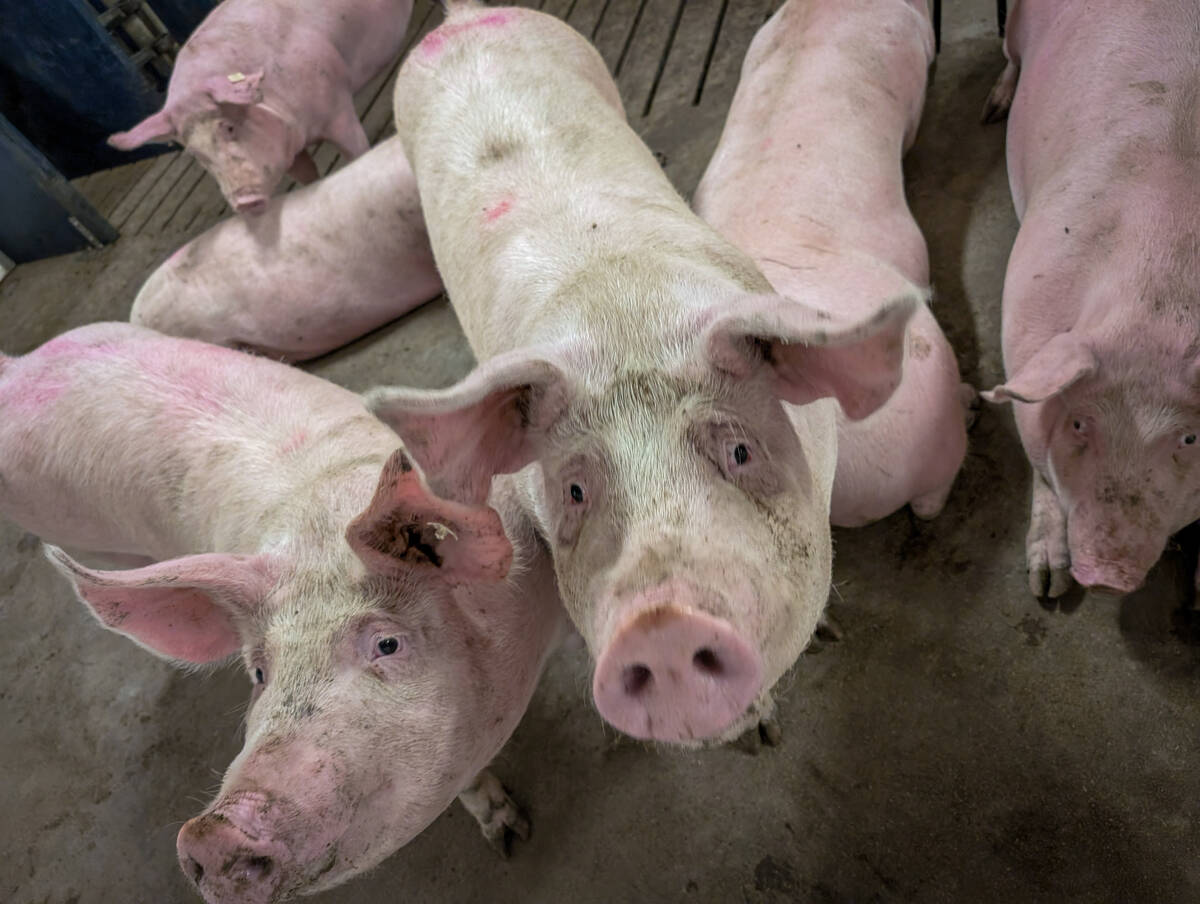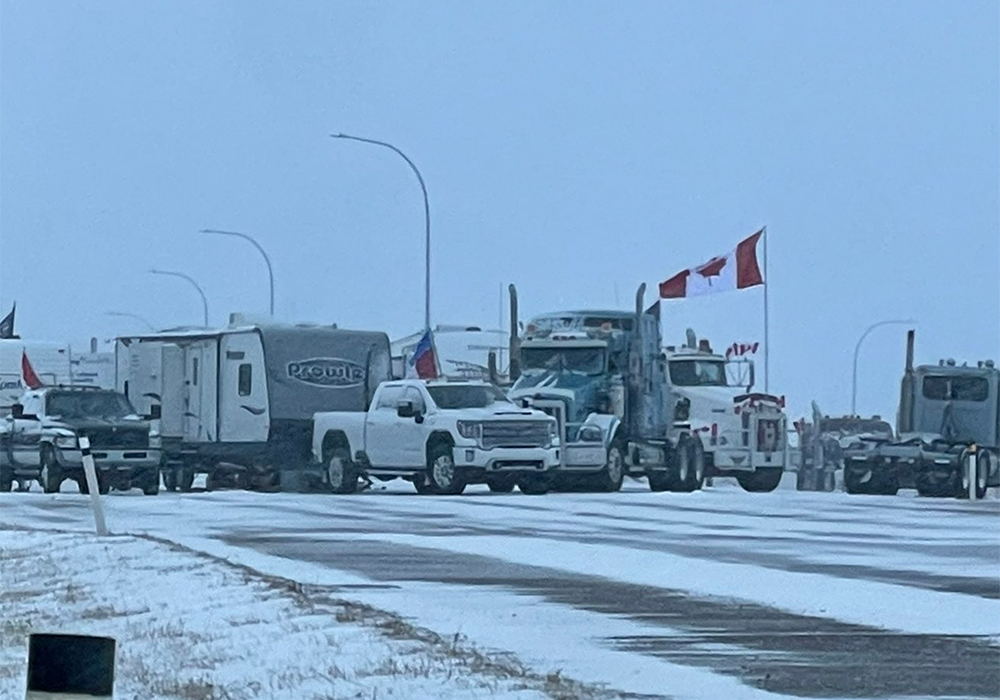An Alberta feedlot operator says he is frustrated and without a voice at the table five days after the border crossing at Coutts, Alta., was closed by protesters opposed to COVID-19 public health measures.
Kevin Serfas said he is speaking out, despite fears about repercussions from blockade supporters, because government and industry are not doing so, despite the dire situation.
“There is a very quiet group of people who are against this,” said Serfas. “But they are afraid.”
Read Also

Pork sector targets sustainability
Manitoba Pork has a new guiding document, entitled Building a Sustainable Future, outlining its sustainability goals for the years to come.
He said many in Alberta’s agriculture sector support the blockade, but it’s not a luxury he has, considering he is responsible for 56,000 head of cattle and faces dwindling supplies of feed to take care of them.
“Cargill can’t kill cows because they have nowhere to go with it,” said Serfas, referring to the company’s beef processing facility in High River, Alta., which is the nation’s largest plant and accounts for 50 percent of the market.
Serfas said he personally knows of hundreds of fat cattle that can’t be delivered to processors because of the blockade.
“If this continues it will grind the cattle industry to an absolute halt. This is a compounding issue. There is no grain in Western Canada,” he said, adding the industry is already dealing with a six-week delay in rail shipments of grain.
“Not only are we not getting what we need via the rail, now we are starting to hinder what amount of it that was going to come up on truck.”
The blockade began Saturday after a convoy of trucks blocked the highway leading to the border crossing.
Protesters had indicated earlier today that they would open a lane of traffic going in each direction at the province’s only 24-hour border crossing.
RCMP said earlier this evening that the border was now open, although live video feeds from the area showed no traffic moving as of 7 p.m. MST.
The provincial government has yet to speak to claims that pandemic-related health restrictions will now be lifted in exchange for free-flowing traffic at the border following a meeting of rural United Conservative Party MLAs who appear to have opened a line of communication with protesters.
Those claims were denied by UCP caucus chair Nathan Neudorf, who said the meeting of MLAs had nothing to do with discussing lifting of vaccine passports.
Nor is it clear if the compromises that protesters say UCP MLAs are making will be enough to secure a permanent end to the full blockade at the border or the spontaneous ones popping up across the province.
The developments come as Alberta Premier Jason Kenney’s comments regarding police being assaulted at the border are also being questioned.
“Premier Kenney heard reports of violence that involved officers, including reports that protesters breached checkpoints set up for safety which resulted in physical altercations and at least one motor vehicle collision,” read a statement from the premier’s office Wednesday.
“It’s clear that this protest is both unlawful and is crossing lines, and putting people in danger, and our economy at risk. It’s time to end this blockade.”
Agriculture Minister Nate Horner has yet to publicly comment on the matter nor has Alberta Beef Producers. The press secretary to the premier provided a statement Wednesday afternoon stating Horner is in contact with the industry, but the sector has yet to request support.
“As the Premier said (Tuesday), we’re willing to consider additional support to agriculture exporters, but as of (Tuesday) no requests had come to the minister of agriculture,” said the statement provided Wednesday afternoon.
“Minister Horner is in constant contact with the industry, and the ministers of justice and transportation are working with the CBSA to see if we can expand hours of operation at other border crossings in Alberta.”
In a statement provided by ABP, chair Melanie Wowk said: “The beef industry is aware of the situation evolving at the Canada-U.S. border crossing. Our focus remains on the people who are affected by immediate delays to the beef supply chain and ensuring the welfare of animals. Further impacts to cattle prices must be avoided.”
Neither the Canadian Cattlemen’s Association nor the federal agriculture minister have provided statements regarding the impacts of the Coutts blockade on the industry.
NDP agriculture critic Health Sweet said producers are being held hostage by the Coutts protesters, and the provincial government needs to act now to provide financial assistance for uninsurable losses to the agricultural sector caused by the blockade.
“This is a prime example of how this UCP government continues to fail Albertans and continues to fail our agriculture industry,” Sweet said.
“We haven’t heard a single thing from the minister of agriculture and forestry and the minister who is also responsible for rural economic development and trade. He has been silent for five days.”
Reports of live cattle being stuck at the border in the blockade have proven to be false, according to the Canadian Food Inspection Agency.
















